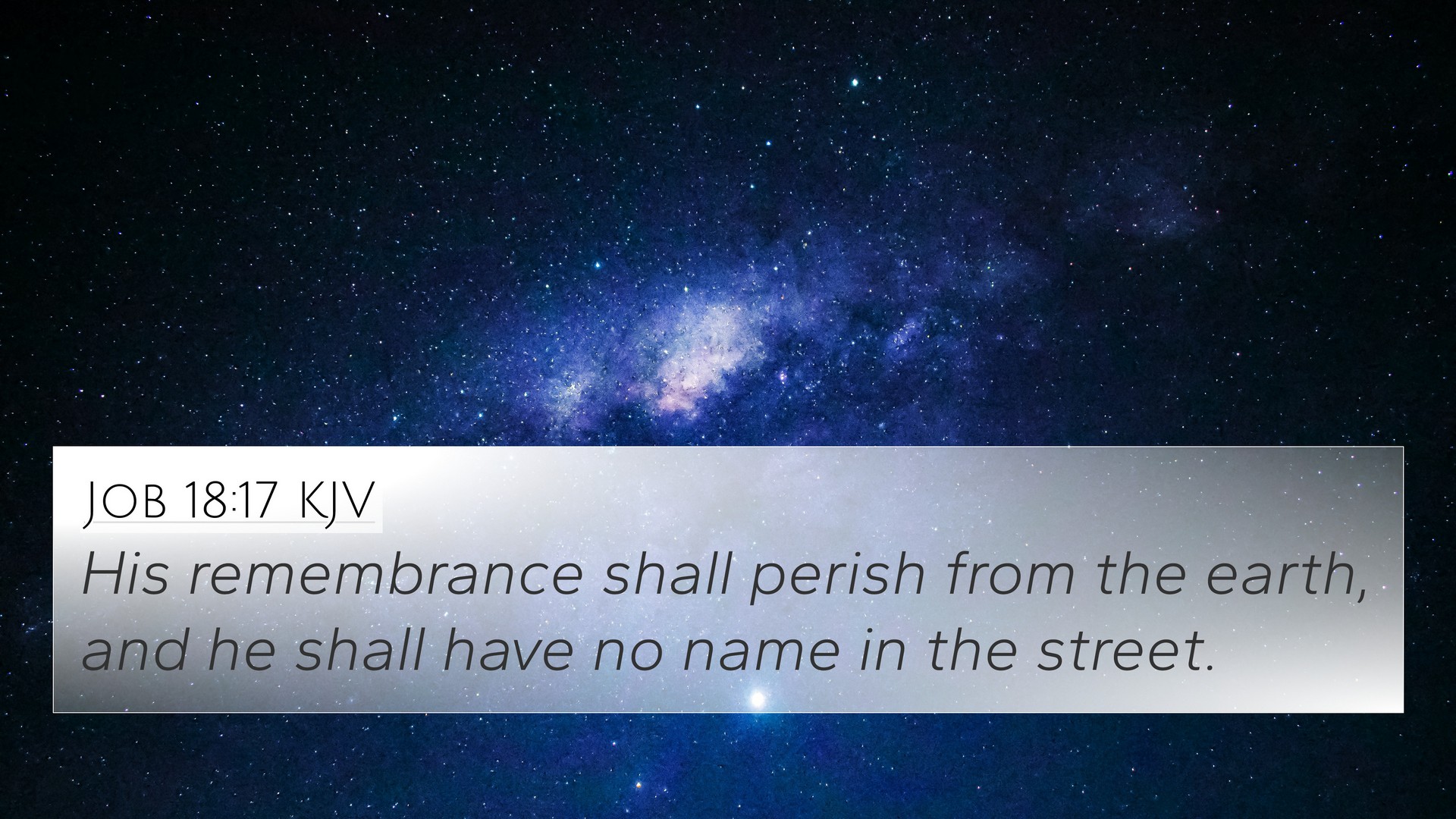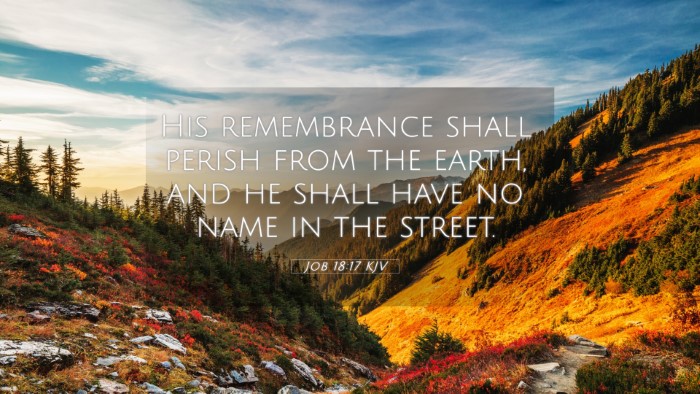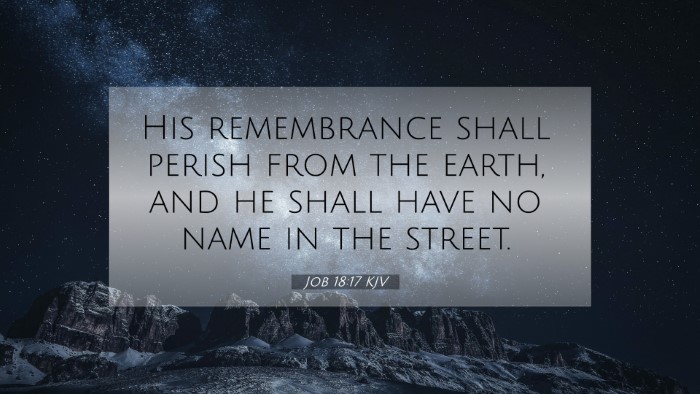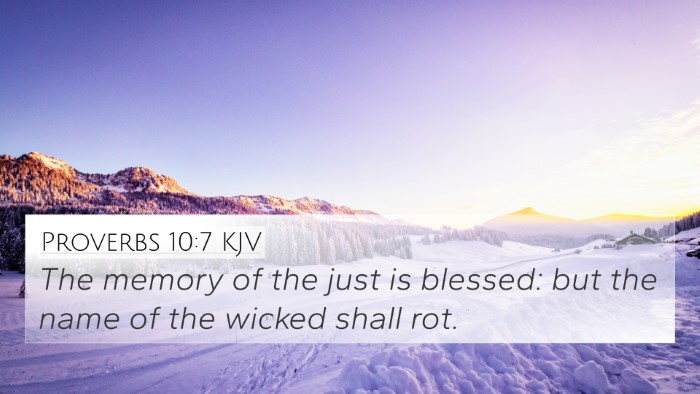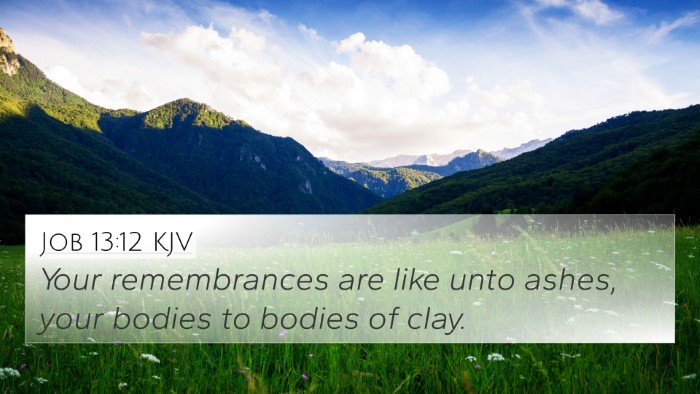Old Testament
Genesis Exodus Leviticus Numbers Deuteronomy Joshua Judges Ruth 1 Samuel 2 Samuel 1 Kings 2 Kings 1 Chronicles 2 Chronicles Ezra Nehemiah Esther Job Psalms Proverbs Ecclesiastes Song of Solomon Isaiah Jeremiah Lamentations Ezekiel Daniel Hosea Joel Amos Obadiah Jonah Micah Nahum Habakkuk Zephaniah Haggai Zechariah MalachiJob 18:17 Similar Verses
Job 18:17 Cross References
His remembrance shall perish from the earth, and he shall have no name in the street.
Uncover the Rich Themes and Topics of This Bible Verse
Listed below are the Bible themes associated with Job 18:17. We invite you to explore each theme to gain deeper insights into the Scriptures.
Job 18:17 Cross Reference Verses
This section features a detailed cross-reference designed to enrich your understanding of the Scriptures. Below, you will find carefully selected verses that echo the themes and teachings related to Job 18:17 KJV. Click on any image to explore detailed analyses of related Bible verses and uncover deeper theological insights.
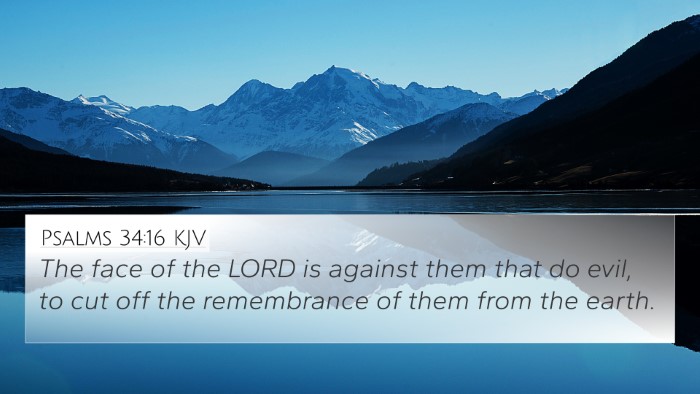
Psalms 34:16 (KJV) »
The face of the LORD is against them that do evil, to cut off the remembrance of them from the earth.

Psalms 109:13 (KJV) »
Let his posterity be cut off; and in the generation following let their name be blotted out.
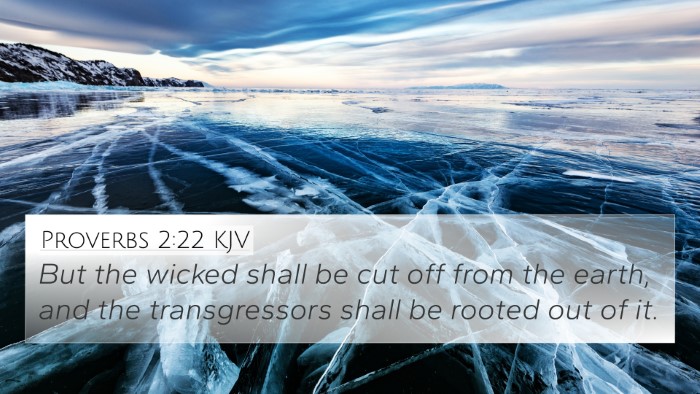
Proverbs 2:22 (KJV) »
But the wicked shall be cut off from the earth, and the transgressors shall be rooted out of it.
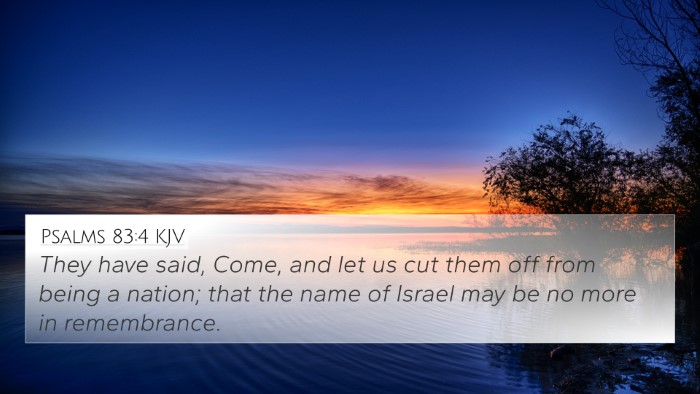
Psalms 83:4 (KJV) »
They have said, Come, and let us cut them off from being a nation; that the name of Israel may be no more in remembrance.
Job 18:17 Verse Analysis and Similar Verses
Understanding Job 18:17
Job 18:17: "His remembrance shall perish from the earth, and he shall have no name in the street."
Summary of Meaning
The verse Job 18:17 speaks to the ultimate fate of the wicked and the transient nature of their legacy. In this context, Bildad the Shuhite, one of Job's friends, is articulating the notion that those who live in rebellion against God will ultimately be forgotten. The mention of remembrance and name emphasizes the importance of reputation and legacy in human society.
Commentary Insights
-
Matthew Henry:
Henry emphasizes that the wicked, as described in this verse, will have their memory forgotten as surely as the shadow disappears with the setting sun. Unlike the righteous, whose names endure and are remembered, the fate of the unrighteous is to sink into obscurity.
-
Albert Barnes:
Barnes notes that the essence of the message lies in the dire consequences of sinful living. He suggests that the loss of one's name and memory from the earth is a severe consequence, reflecting God’s judgment and the inevitable ruin that accompanies a life lived in opposition to divine principles.
-
Adam Clarke:
Clarke elaborates on the idea that true acknowledgment and memory in the public sphere require not just existence but a life aligned with righteousness. For the wicked, even their contributions to society will fade, as fidelity to God is what ensures one’s legacy.
Bible Cross-References
This verse connects to various other scripture passages that explore themes of memory, legacy, and divine judgment. Here are some relevant cross-references:
- Psalm 37:28: "For the Lord loves justice; he will not forsake his saints. They are preserved forever, but the children of the wicked shall be cut off." This verse contrasts the fate of the righteous and the wicked, reinforcing the theme of enduring legacy versus forgetfulness.
- Proverbs 10:7: "The memory of the righteous is a blessing, but the name of the wicked will rot." This passage speaks directly to the idea of reputation and the long-term consequences of one’s actions.
- Ecclesiastes 1:11: "There is no remembrance of former things, nor will there be any remembrance of things that are to come by those who will come after." This illustrates the fleeting nature of human achievements without a foundation in righteousness.
- Job 4:7: "Remember now, who ever perished being innocent? Or where were the upright ever cut off?" This verse reflects on the justice of God and ties into the idea of the wicked facing inevitable ruin.
- Matthew 10:32: "Therefore whoever confesses Me before men, him I will also confess before My Father who is in heaven." This highlights the importance of acknowledgment and legacy through righteous living.
- Philippians 4:3: "And I urge you also, true companion, help these women who labored with me in the gospel, with Clement also, and the rest of my fellow workers, whose names are in the Book of Life." This denotes an eternal legacy that differs dramatically from that of the wicked.
- Jeremiah 11:19: "But I was like a docile lamb brought to the slaughter; and I did not know that they had devised schemes against me." This highlights the fate of the unrighteous plotted against the faithful.
Thematic Connections
The themes present in Job 18:17 align closely with broader biblical motifs concerning:
- Divine Justice: The narrative conveys a severe warning about the consequences of a wicked life.
- Legacy and Remembrance: The eternal significance of how one lives reflects their legacy posthumously.
- Faithfulness and Righteousness: Contrasts the lives lived in devotion to God against the lives of the wicked.
Conclusion
By understanding Job 18:17 through various commentaries and its connections to other scriptures, we observe a consistent biblical theme: the transient nature of a life lived apart from God. For those seeking deeper insights, tools for Bible cross-referencing and systematic approaches to studying the Scriptures can enhance one’s understanding of these interconnected themes.
